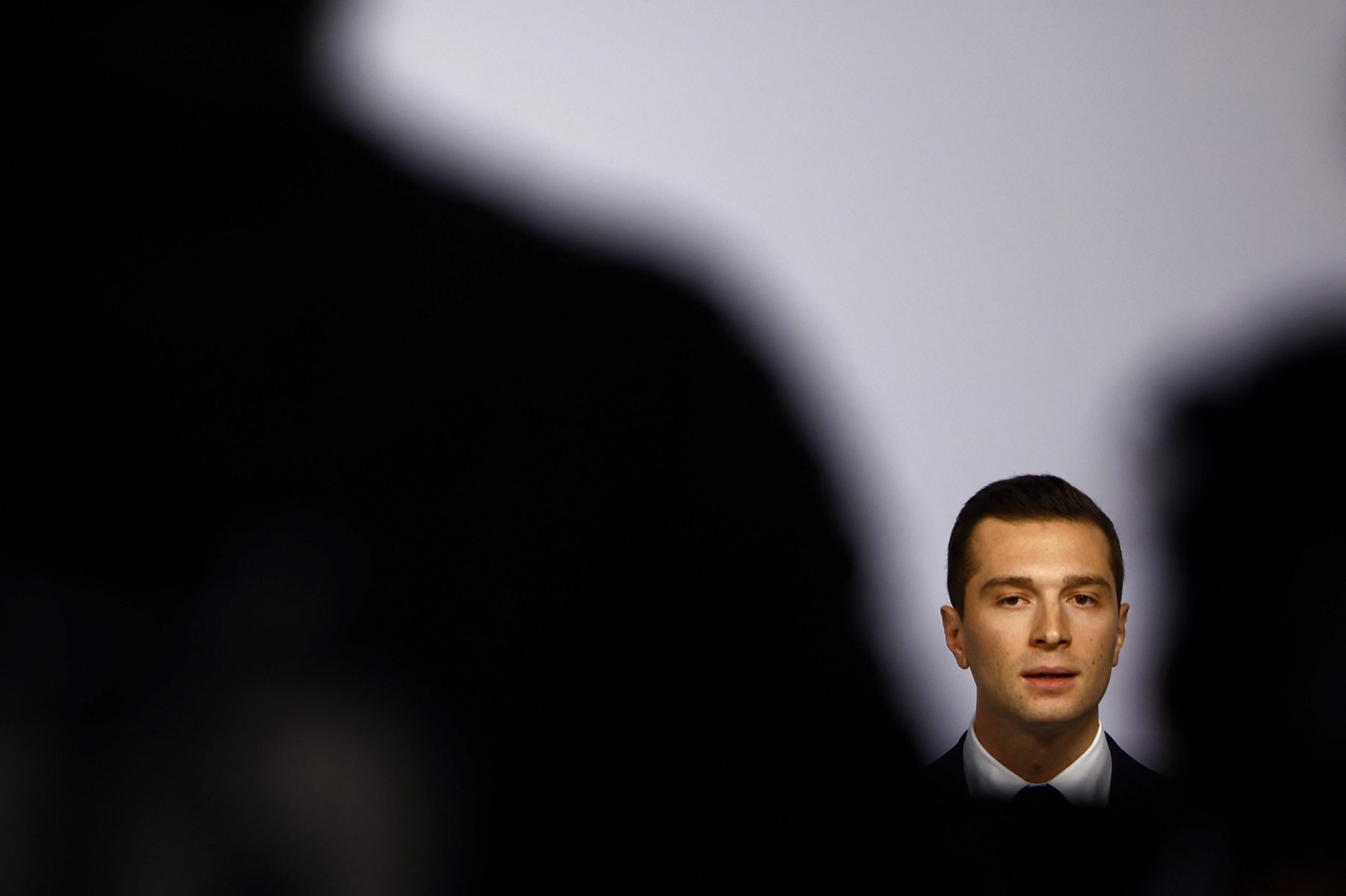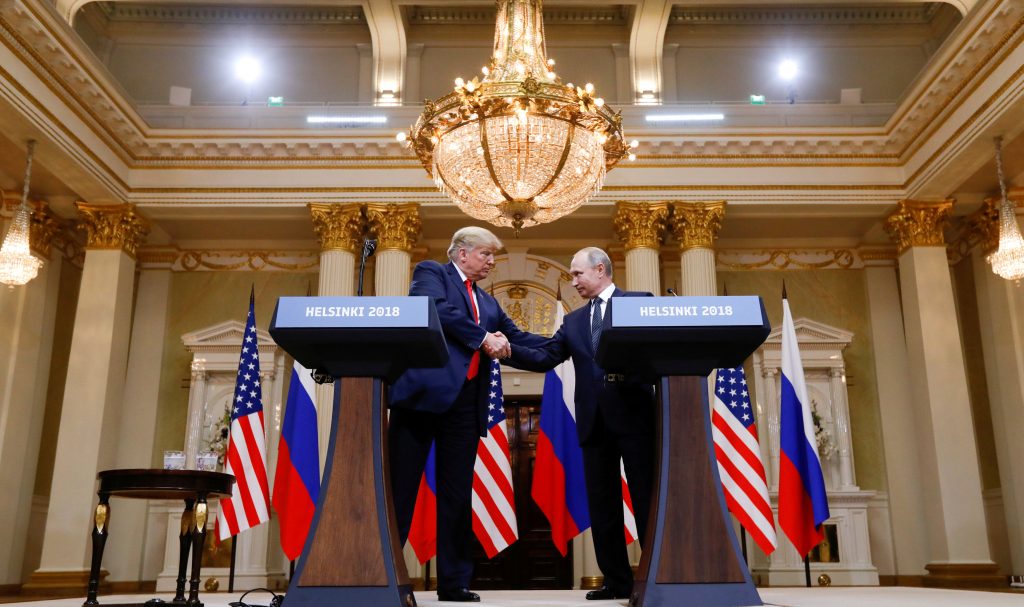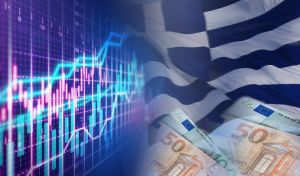SAINT-DENIS, France—Six years ago, a media specialist was called to the headquarters of National Rally to groom the party’s new spokesman: a clean-cut 22-year-old by the name of Jordan Bardella .
The assignment was sensitive. Bardella was the protégé of Marine Le Pen and a key part of the party’s rebranding strategy.
The adviser was initially skeptical of whether Bardella was relatable. He was young but seemed rigid and stodgy, recalled Pascal Humeau, a former journalist who specializes in media training, in an interview. His style was formal, perennially dressed in a suit and tie, with hair neatly parted at the side. He lived in a manicured suburb and refused to take the subway, preferring to drive around town in the two-seat Smart car his father had given him.
But there was one facet of Bardella that Humeau found promising. He had grown up in a housing project in Saint-Denis, an area on the outskirts of Paris that to many voters was synonymous with crime, poverty and France’s decadeslong struggle to integrate its large Muslim minority.
Under the spin doctor’s tutelage, Bardella developed talking points that portrayed him as a guy who “comes from a place where you can die for refusing to give someone a cigarette, for a sideways glance,” Humeau recalled, adding: “I came up with that.”
Bardella’s new persona would come to embody the shapeshifting National Rally party and help carry it to the threshold of power . On Sunday, his forces clobbered those of President Emmanuel Macron in the first round of elections for the National Assembly, putting National Rally within striking distance of a majority in the 577-seat lower house. If National Rally prevails in final voting July 7, Bardella, now 28, is expected to become France’s first far-right head of government since the Vichy regime collaborated with Nazi Germany.
Taking the reins of government would allow National Rally to make its case that, after decades on the fringes of French politics, a Le Pen is ready for the presidency. Marine Le Pen, who took over the party from her father, is expected to run for the country’s highest office when Macron’s term expires in 2027.
It’s a stunning turn of events as Paris is just weeks away from hosting the Summer Olympics.
The election has largely hinged on public anxieties over rising immigration and a perceived decline of living standards among working- and middle-class French. As immigrants from North Africa and other parts of the Muslim world have settled in France’s blighted banlieues—or suburbs—over the decades, they have brought with them religious customs that voters say collide with the strictly secular values of the French republic.
Le Pen, Bardella and National Rally have tapped into those anxieties, casting Macron and France’s political establishment as deeply out of touch with voters who fear immigration has changed the face of the country.
Gaining the top job would mark an extraordinary rise for Bardella, who is the day-to-day party chief but has no experience governing at the national level.
Still, he works closely with Le Pen, the party’s ideological authority, referring to her at times as “my other mom” or addressing her privately as “my queen,” according to Humeau.
Party’s metamorphosis
Bardella and Le Pen declined interview requests for this article. Interviews with current and former National Rally officials who mentored Bardella at the start of his meteoric rise reveal an adaptable politician who mirrors National Rally’s own metamorphosis.
Once a protest party defined by antisemitic and euroskeptic rhetoric, National Rally has morphed under Bardella into a mainstream force rooted in nationalist identity politics.
National Rally wants to restrict the rights of foreign residents living legally in France and tighten access to citizenship, welfare and housing. It also aims to bar people with dual nationality from holding “strategic” government jobs and to ban women from wearing Muslim headscarves in any public space—including the sidewalks of Paris—though Bardella has recently said the stance won’t be a priority.
Bardella has cast such measures as a means to defend France and French culture against an immigrant “submersion” that threatens to alter the country’s demography, echoing a conspiracy theory known as “le grand remplacement,” or great replacement, which was invented by French author Renaud Camus more than a decade ago and spread across the West. It asserts that global elites are bent on replacing Europe’s white population through mass migration from nonwhite regions of the world.
“I don’t like the word “great replacement” because I don’t think it’s clear. It’s a very intellectual slogan, but it points to a reality that is true,” Bardella said on national TV in 2021, adding: “Go for a walk in the neighborhoods where I grew up, in Seine-Saint-Denis.”
When a panelist interjected, asking Bardella if he was “talking about skin color,” Bardella replied: “I’m talking about culture, the implanting on our soil of a civilization with whom we share nothing.”
Located just north of Paris, Saint-Denis has long been a symbol of France’s national identity. Buried under its namesake basilica are the remains of French kings dating back to the Middle Ages. A stone’s throw away rises the Stade de France, the national soccer stadium that will be center stage when Paris hosts the 2024 Summer Olympics. Around two billion euros have been funneled into a sleek Olympic Village to house athletes nearby. Once the Games are over, the lodgings will be converted into offices and housing, some of it subsidized.
The investment is designed to turn around an area that suffers from joblessness and crime. In Saint-Denis, the rate of poverty stood at 36% in 2021, compared with the 14.5% national average. The number of drug trafficking offenses per capita was more than eight times the national average in 2023, and the number of assaults per capita was double, according to French authorities.
Saint-Denis was also the place where the carnage of the 2015 Paris terrorist attacks, which killed 130 people, began and ended. Islamic State militants—some of whom were French nationals—attacked the Stade de France with suicide vests as their cohorts fanned out across central Paris, gunning down people in cafes, restaurants and the Bataclan concert hall. The militants’ ringleader holed up in Saint-Denis until, days later, he died in a shootout with police as explosions rocked the neighborhood.
Bardella grew up in a public-housing project with his mother, an Italian immigrant, who worked a low-paying job as a teacher’s assistant at a local nursery school. Bardella recalled looking down from his eighth-floor apartment at what he described as a Quranic school where young girls wore Muslim headscarves.
“For some people this isn’t a problem. For me it is,” he said.
Bardella spent weekends and holidays with his father, who ran a small business and lived in a more affluent Paris suburb. In Saint-Denis, he interned at a local police station and attended private Catholic schools that taught its religious precepts even though many students came from Muslim families in the neighborhood. His high school bars students from bringing cellphones on campus or wearing clothing such as tracksuits, headscarves and baseball caps. An administrator said the school didn’t have any problems with violence, and students who acted up were expelled.
“He didn’t see what I saw growing up,” said Fatih Murat, a 29-year-old driver, who attended the public high school around the corner from Bardella’s apartment. The only field trip Murat’s class ever took outside the area, he said, was to the main courthouse in central Paris.
In 2012, when he was just 16 years old, Bardella joined the National Front, as the party was then known. Jean-Marie Le Pen had recently handed the reins of his party to his daughter, Marine, who set out to “de-demonize” the image of a party founded by her father and Pierre Bousquet, who was a member of the French division of the Waffen-SS during World War II.
The National Front had been ostracized over the years as France grappled with its role in deporting tens of thousands of French Jews to Nazi death camps. The isolation deepened when Jean-Marie Le Pen in 1987 described the Nazi gas chambers as a mere “detail” of history. He would repeat the comment in 2015, prompting his daughter to oust him from the party.
Marine Le Pen set out to recruit a new generation of party leaders who weren’t weighed down by historical baggage. In Bardella, they found an energetic teen who was ready to pound the pavement in Saint-Denis, a city where the party was thin on the ground.
“He was really passionate about politics, which is quite rare. At his age people usually think about other things,” said Wallerand de Saint-Just, a longtime party member and regional councilor.
Le Pen wanted to broaden the party’s focus from immigration, which animated its base, toward economic issues such as housing and education that her lieutenant at the time, Florian Philippot , believed would appeal to mainstream voters. They crafted a platform that called for a rollback of the European Union and the euro as a way for France to take back its economic destiny.
Philippot took Bardella under his wing after he graduated from high school and became secretary of the party’s Seine-Saint-Denis chapter. One day Bardella invited Philippot to speak in his chapter before accompanying him on the car ride back to Paris.
“I’m fed up, in the banlieues, of only talking about immigration,” Philippot recalled Bardella telling him. “People have lots of other problems that need to be tackled head on.”
Philippot thought he had found a kindred spirit in Bardella, and he used his sway within the party to push the young politician up the party ticket in the 2015 local elections. The move helped Bardella, at 20 years old, become a regional councilor.
Bardella dropped out of the Sorbonne university, where he had been studying geography. By now, Bardella was living in an apartment that his father had lent to him in the more affluent town of Enghien-les-Bains. His father also gave him the Smart car so that he wouldn’t have to take the subway, something he’s always hated, according to Humeau, the media trainer.
Le Pen’s loss to Macron in the 2017 presidential election forced her ranks into yet another revamp. The party ditched its opposition to the euro, refocused around crime and immigration and changed its name to National Rally. Philippot, who opposed the shift, left the party, but Bardella stayed and thrived.
“He’s a chameleon. He’s not bothered by his convictions, because he doesn’t have any,” Philippot said.
‘Jordan, you’re handsome!’
In 2018, a close Le Pen aide reached out to Humeau to help the party improve its image and credibility. Le Pen wanted Bardella trained up. Humeau had seen interviews of her protégé on TV and thought he was “extremely stiff.”
“I said ‘No, it’s not possible, he’s no good,’” Humeau recalled.
But the former journalist said he was pleasantly surprised when he finally met Bardella in person, finding him laid back and friendly.
Humeau advised Bardella to loosen up in public and start acting his age. He wanted Bardella, above all, to lean into his past. French voters, Humeau said, could relate to someone growing up on the mean streets of Saint-Denis and struggling to make ends meet, with “nothing but 10 euros on the kitchen table at the end of the month.”
Bardella went on to win a seat in the European Parliament in 2019.
He began dating one of Le Pen’s nieces and started building a following on TikTok. His posts alternated between clips of his biting repartee on debate shows and quieter moments, strolling through a field with Le Pen.
One video that was viewed 1.6 million times features him moving through a crush of young people in a Paris nightclub. The crowd chants his name amid the boom of techno music and cries of “Jordan, you’re handsome!”
Charlotte Gicquel, a 19-year-old student from Cholet, a town in western France, turned up at the Paris nightclub, waiting for over an hour to take a selfie with Bardella.
“Young people who were not at all interested in politics before, are now paying attention,” said Gicquel, who follows Bardella on TikTok. “He knows what he’s talking about, and he’s convincing.”
In early June, Gicquel and millions of other French voted to re-elect Bardella to the European Parliament in elections that saw National Rally garner 31% of the vote, an unprecedented score for the party.
Moments after the votes were counted, Macron went on national TV to announce he was calling snap elections for France’s own parliament. The president later cast the new vote as a moment of truth for whether voters were just blowing off steam with their European ballots or truly supported National Rally’s anti-immigrant agenda. It was a huge gamble. If Le Pen’s forces won a majority Macron would be compelled to appoint a prime minister from her ranks.
Le Pen responded by announcing Bardella would be the party’s choice, thrusting him into the brightest of political spotlights. Now, he had to win over a much tougher crowd: the country’s business establishment.
Patrick Martin, president of the national business lobby, summoned leaders of the top political parties to present their economic program to an amphitheater packed with entrepreneurs. Earlier in the day, Martin had been quoted in Le Figaro newspaper panning National Rally’s agenda as “dangerous for the economy.”
Bardella took the stage and immediately directed a quip at Martin. “It’s always nice to wake up in the morning and be called a danger by the person who invited you an hour later,” he said.
Business leaders wanted to know how Bardella was going to fund his plans to slash France’s value-added tax from 22% to 5.5% on fuel and electricity, a measure that would cost billions of euros. He said he planned to cut France’s contribution to the EU, and crack down on immigration. They also grilled him about whether National Rally would follow through on its pledge to roll back Macron’s pension overhaul, which raised the legal age of retirement to 64 from 62. Later retirements underpinned billions of corporate tax cuts that Macron had introduced.
Bardella responded that people who started to work before the age of 20 should be able to retire at 60. But given the current state of the country’s public finances, he said, the room for maneuver for other workers was limited. “I’m not going to sell you things that I won’t be able to do,” Bardella said.
A sigh of relief swept the room with one voice saying: “OK, so he’s not doing it.”
Write to Noemie Bisserbe at noemie.bisserbe@wsj.com and Stacy Meichtry at Stacy.Meichtry@wsj.com



